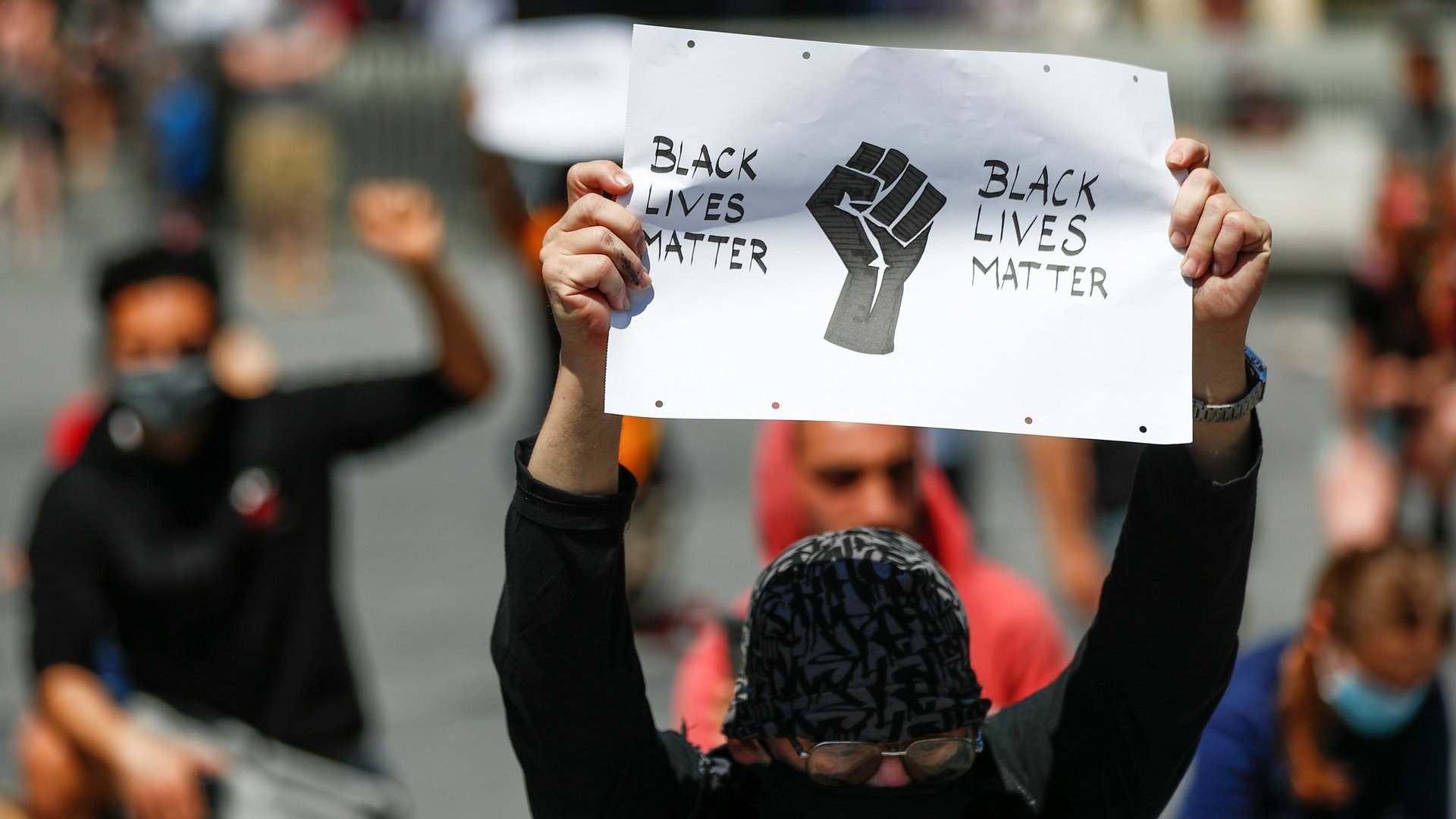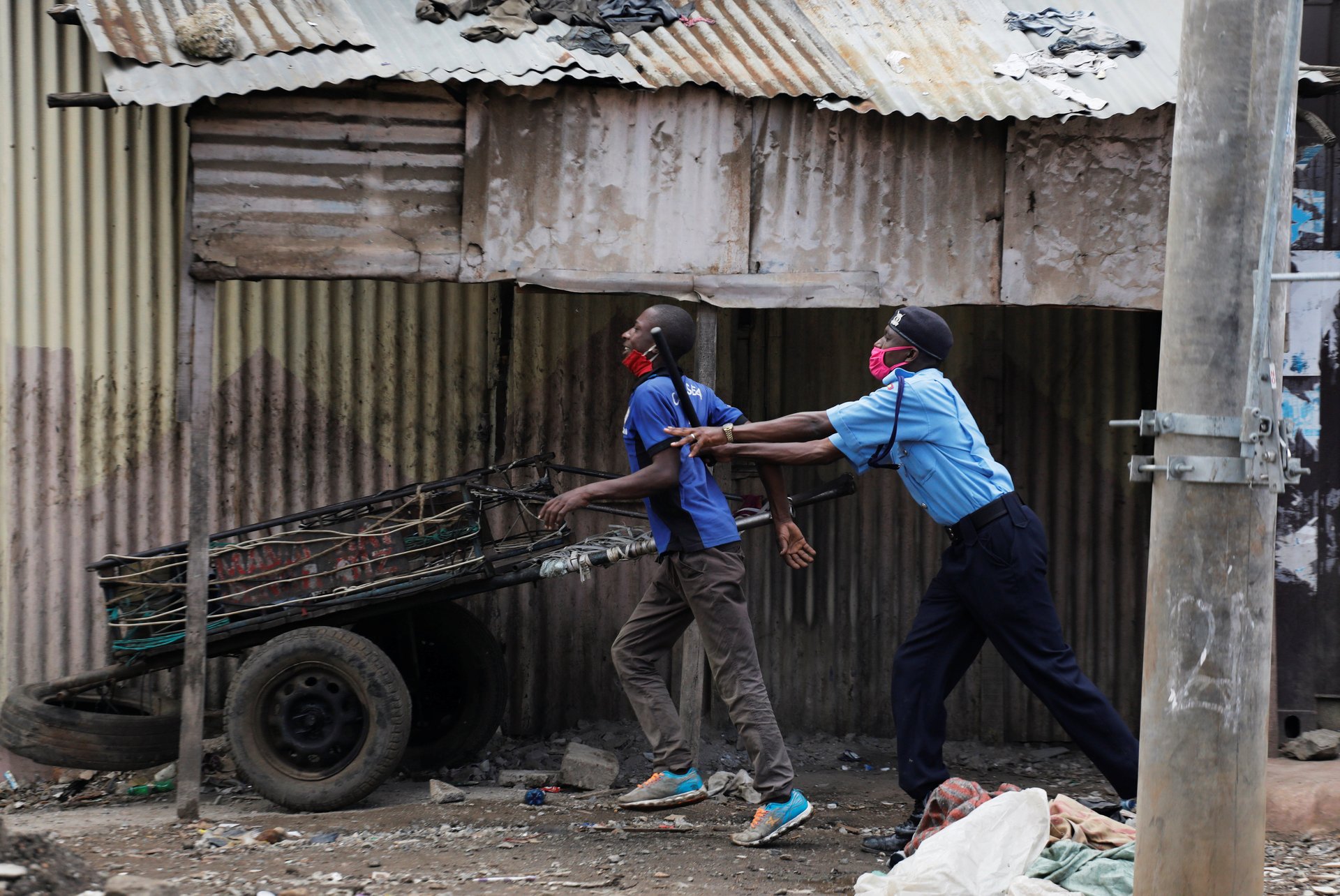George Floyd’s killing touches a nerve with Africans who know police brutality at home and abroad
When a high ranking official condemns state brutality against citizens in an interaction between African countries and the United States, Africa is typically on the receiving end.


When a high ranking official condemns state brutality against citizens in an interaction between African countries and the United States, Africa is typically on the receiving end.
This week, the tide turned as the African Union (AU) issued a strongly worded statement condemning the killing of George Floyd, the African American killed by Minneapolis police officers. The AU Commission chairperson’s statement also extended to the “rejection of the continuing discriminatory practices against black citizens” as well as a request for the US to “ensure the total elimination of all forms of discrimination based on race or ethnic origin.”
The message from the AU carried even more potency as it was echoed by statements from US embassies or ambassadors in Congo, Zimbabwe, Kenya, Uganda and Tanzania all condemning the killing. While the condemnations by these embassies are striking and somewhat defer from the core of president Trump’s public statements, it’s a necessary measure if they are to retain legitimacy while engaging local authorities on human rights issues.
Brian A. Nichols, the US ambassador to Zimbabwe, who is African American, took a much more personal tone. “As an African American, for as long as I can remember I have known that my rights and my body were not fully my own. I have always known that America, conceived in liberty, has always aspired to be better—a shining city on a hill—and that’s why I have dedicated my life to her service.”
The high-level statements come amid increasing pace of online protests among Africans online protesting the killing of Floyd, and by extension, the racist treatment of black people in the US.
So far there has been a small protests at the US embassy in Monrovia, Liberia on May 28, but it would not be surprising if other protests mushroom in other cities as there have been from London to New Zealand.
The subject of racist police brutality hits close to home for some Africans given that African immigrants have also been on the receiving end of some of the worst examples in the US.
In a high-profile incident, Amadou Diallo, a Guinean immigrant, was wrongly killed and shot 41 times by New York police officers back in 1999. While Diallo’s case has been immortalized in music and film, like Wyclef Jean’s 2000 hit track Diallo and Netflix’s Trial by Media documentary, several other African immigrants stand at risk of being wrongly and racially profiled by errant police officers.

Closer to home
In protesting George Floyd’s killing, young Africans are also drawing painful parallels with events back home. In Nigeria, online campaigns, civic society groups and celebrities are protesting the killing of a 16-year old girl Tina Ezekwe last week by police officers. Amid intense pressure, two policemen have been arrested with the local police command promising investigation and possible prosecution. But Tina’s killing is only one of several by trigger-happy Nigerian security forces who have a reputation for brutality.
A Special Anti-Robbery Squad has particularly come under the spotlight for vast reports and evidence of harassment, unlawful arrests, extortion and killing of innocent civilians. As protests to get the unit scrapped have failed, Nigerian techies, who are often wrongly profiled as fraudsters, are exploring the option of a legal campaign against the unit.
One extra-judicial killing has particularly proved costly for Nigeria. In 2009, Mohammed Yusuf, erstwhile leader of Boko Haram died in police custody. His death sparked violence on a much larger scale as the group morphed into a murderous sect after Abubakar Shekau, a far more radical leader (and now Nigeria’s most wanted man), emerged in Yusuf’s stead. The decade-long insurgency led by Shekau resulted in over 20,000 deaths, the displacement of over two million people and the destabilization of Nigeria’s northeast region.
Elsewhere on the continent, the fatal cost of over-zealous police officers has been in full glare amid coronavirus lockdowns. At least six Kenyans have been killed by police trying to enforce lockdown curfews in Kenya while South African police officers have had serious allegations, including murder and rape, leveled against them amid the coronavirus restrictions, according to UN’s human rights office. In Nigeria, as of mid-April, police officers had killed more people than Covid-19, human rights groups claim.

Sign up to the Quartz Africa Weekly Brief here for news and analysis on African business, tech and innovation in your inbox